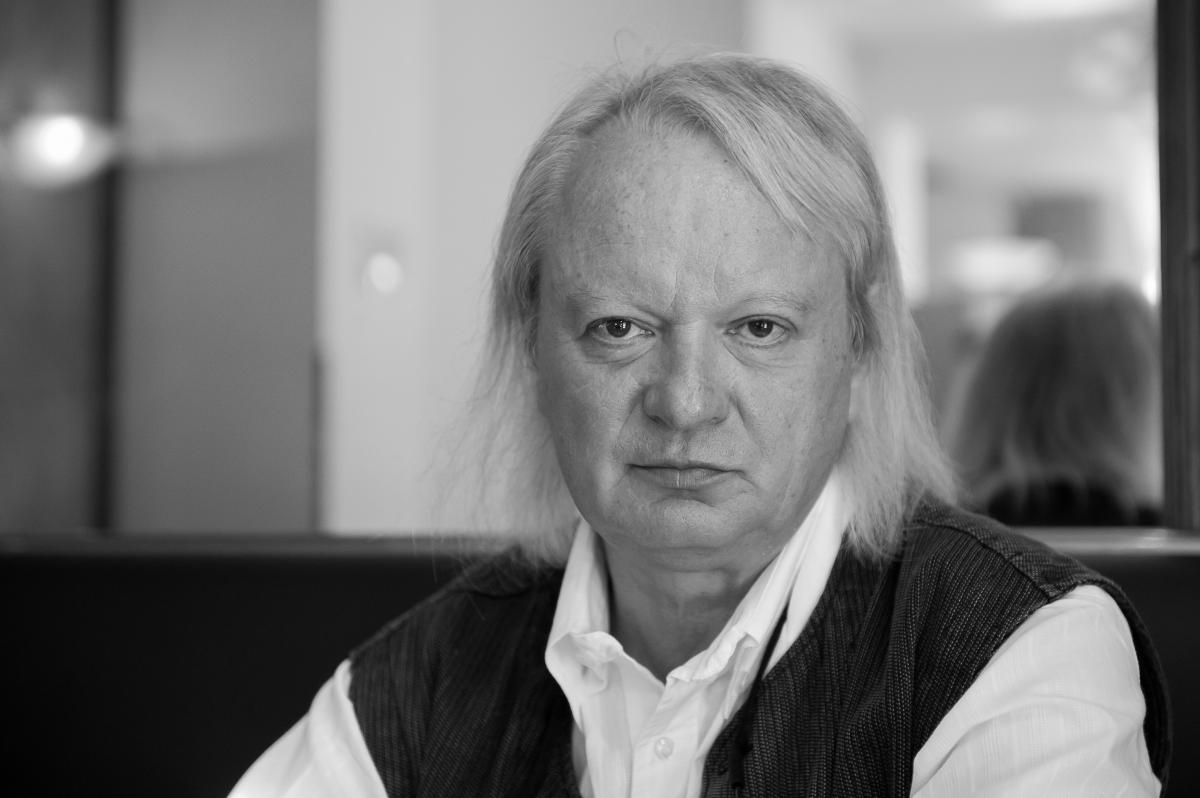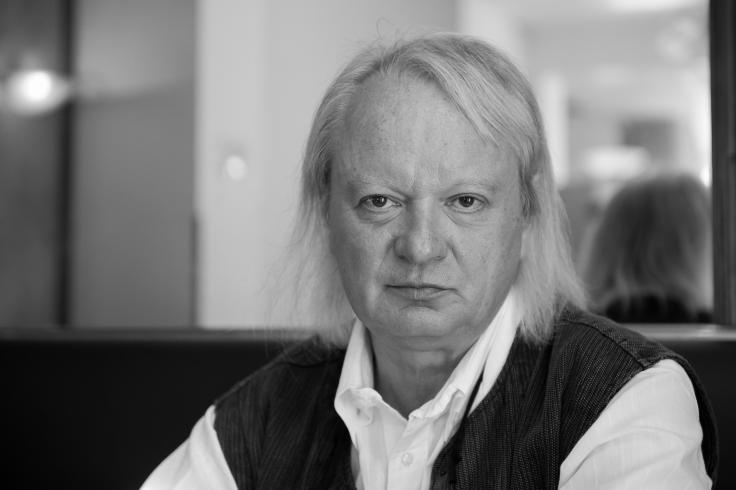CANCELLED—Leading International Composers: Philippe Manoury, France
University of Maryland Faculty and Students

This season’s Leading International Composer features Philippe Manoury of France.
Program
This season’s Leading International Composer is Philippe Manoury. Born in Tulle (Corrèze) in 1952, he is one of the most eminent contemporary French composers. After studies in Paris, he worked at universities in Brazil before returning to France in 1981 when he was invited to work at IRCAM, the forward-looking institute for electro-acoustic music founded by Pierre Boulez. A noted teacher, Manoury was in charge of the education work of the Ensemble Intercontemporain from 1983–87, and taught composition at the Lyon Conservatoire from 1987–97. He has served as Composer in Residence for the Orchestre de Paris and at the National Theatre in Orléans. From 2004–12, Manoury taught composition and electronic music at the University of California, San Diego. His catalogue ranges from compositions for solo instruments, works for instrumental and vocal ensemble, major orchestral works (Sound and Fury was written for Boulez’s 75th birthday and first performed by him with the Chicago Symphony Orchestra), and four operas including K…, based on Kafka’s The Trial, and commissioned by the Paris Opéra where it was first performed in 2001.
Program:
TBA
Performers for this concert include University of Maryland School of Music faculty and students. In partnership with the Embassy of France and University of Maryland School of Music.


About the Composer
Philippe Manoury is regarded as one of the most important French composers as well as a researcher and forerunner in the field of live electronics. Despite an in-depth training as a pianist and composer (he was taught, among others, by Max Deutsch, a student of Schoenberg’s, Gérard Condé, Michel Philippot, and Ivan Malec) he considers himself to be self-taught. “The composition must be born from an inner longing and requires no preconditions.” Accordingly, he began his first compositional experiments on his own in parallel to his first lessons in music, and at the age of 19 his works were already being performed at major festivals for new music. In 1974, the premiere of his piano piece Cryptophonos performed by Claude Helffer brought the final breakthrough.
Following two years of teaching at Brazilian universities, Manoury’s compositional interest in mathematical models brought him to the Paris Institut de Recherche et Coordination Acoustique/Musique (IRCAM). He worked there from 1981 together with the mathematician Miller Puckette on MAX-MSP, a programming language for interactive live electronics. Between 1987-91, he composed Sonus ex machina, a cycle focusing on the real time interaction between acoustic instruments and computer-generated sounds—a topic that continues to influence his artistic work and theoretical texts.
This moment of interaction also characterizes his approach to large orchestras: he turns them into a sound laboratory where new interactive possibilities are tested. This increasingly includes the spatial arrangement of musicians in the concert hall. In his work In situ, which premiered in Donaueschingen in 2013 and was awarded the SWR Symphony Orchestra prize, he divides the orchestra into groups that are placed around the audience. Inspired by François-Xavier Roth, who conducted the premiere, Manoury is extending the composition to make a large-scale spatial triptych for the Gürzenich Orchestra Cologne: the individual works of the Köln Trilogie can be heard over the course of four years. The first part, Ring, was premiered to great critical acclaim in May 2016 and will receive its French premiere in September 2017. In situ will receive a repeat performance in November 2017, followed by the premiere of the final part for orchestra, choir, solo singers and actors in 2019, directed by Nicolas Stemann.
The opening of the 2017/2018 season was marked by Kein Licht, a collaborative music theatre project devised by stage director Nicolas Stemann and Manoury. This work-in-progress in between music and spoken theatre is based on Elfriede Jelinek’s text of the same name which deals with, among other subjects, the nuclear catastrophe in Fukushima. The premiere will took place at the RuhrTriennale in 2017. In July 2018, Emmanuel Pahud premiered a new flute concerto with the Gürzenich-Orchester Köln under François-Xavier Roth.
Alongside pieces for large orchestras such as Sound and Fury, the violin concerto Synapse (2009), and Echo-Daimónon for piano, electronics, and orchestra (2012), recent years have also seen the premieres of Manoury’s string quartets (Stringendo and Tensio, both 2010; Melencolia, 2013; Fragmenti, 2016) and instrumental works with electronics (Partita I for viola, 2007; Partita II for violin, 2012; Le temps, mode d’emploi for two pianos, 2014).
Manoury has held various teaching and artistic positions, including at Ensemble intercontemporain (1983-87), Conservatoire de Lyon (1987-97), Orchestre de Paris (1995-2001), Festival d’Aix-en-Provence (1998-2000), as well as at the Scène nationale d’Orléans (2001-03). He is professor emeritus of the University of California San Diego where he taught composition from 2004-12. In 2013, he returned to his native France where he was named Professor of Composition at the Académie Supérieure de la Haute École des Arts du Rhin in Strasbourg. He has held his own academy of composition as part of the festival Musica in Strasbourg since 2015. Following an invitation from the Collège de France, he was a guest lecturer at the “Chaire Annuelle de Création Artistique” from January-June 2017.
Manoury has received numerous awards for his work. In 2014, he was named Officier des Arts et des Lettres by the French Ministry of Culture. Manoury is a member of the honorary committee of the French-German fund for contemporary music/Impuls Neue Musik. In summer 2015, he was elected as a member of the Berlin Akademie der Künste. Manoury’s works are published by Universal/Editions Durand.
